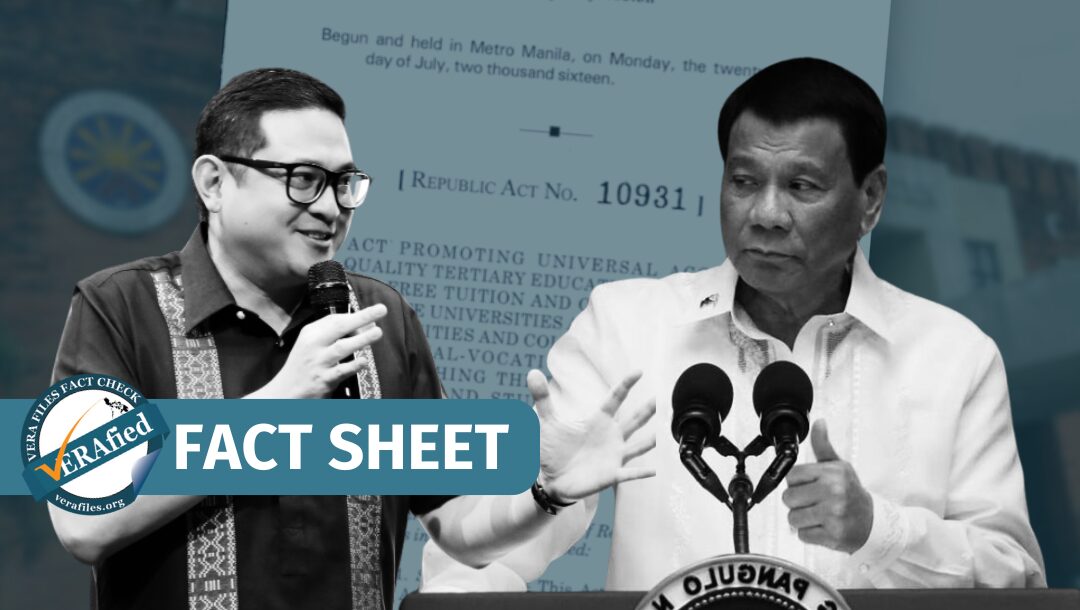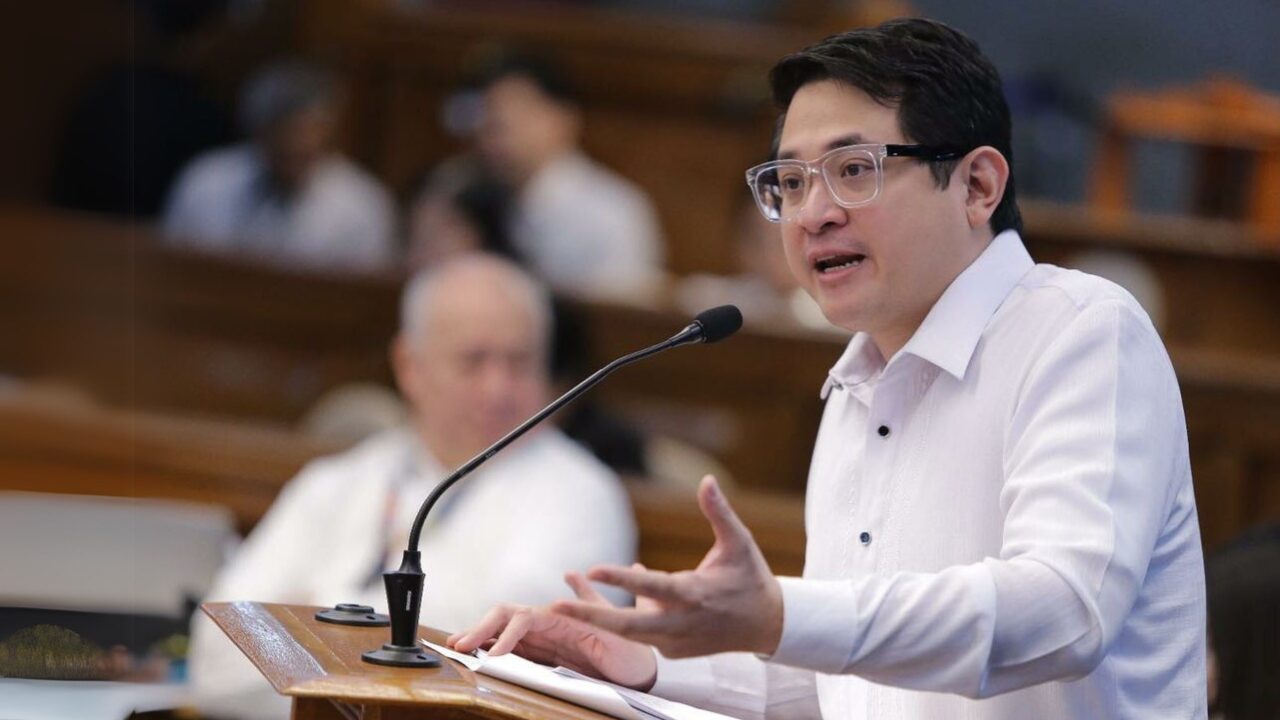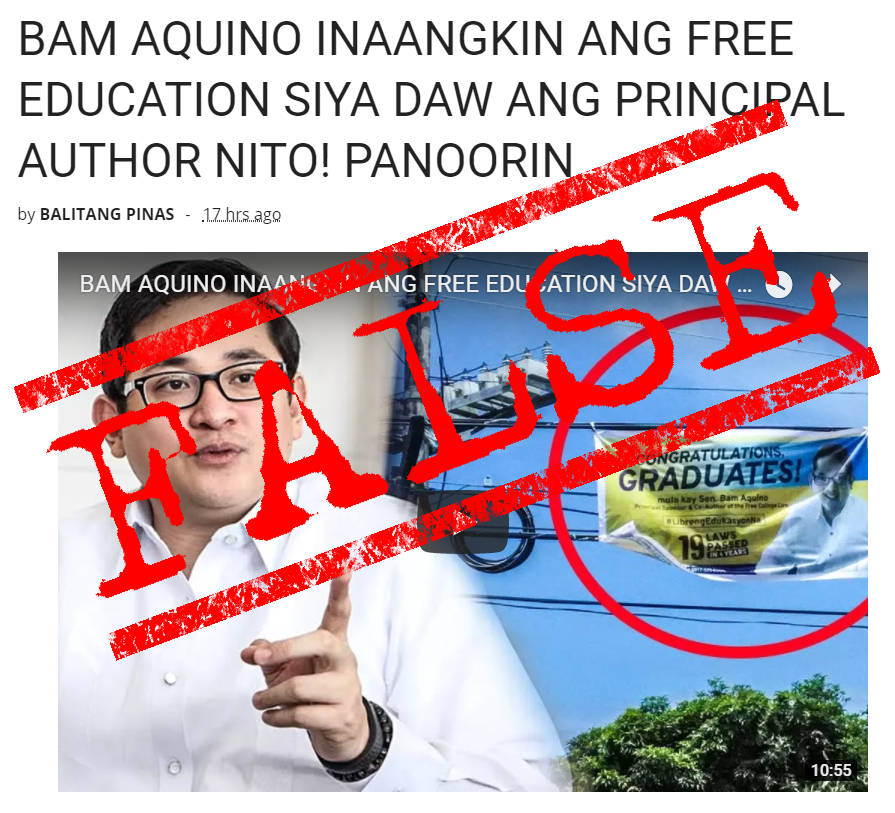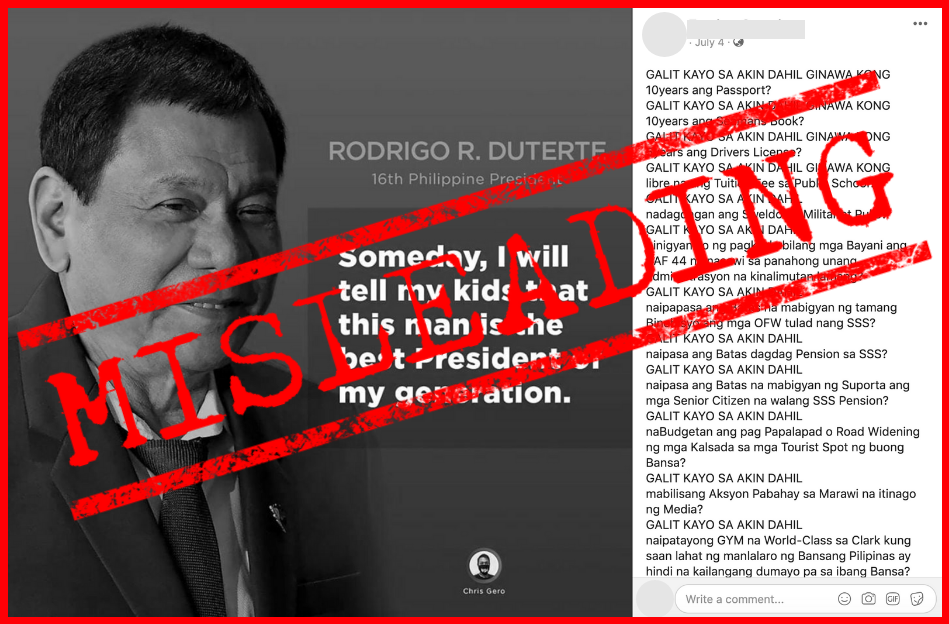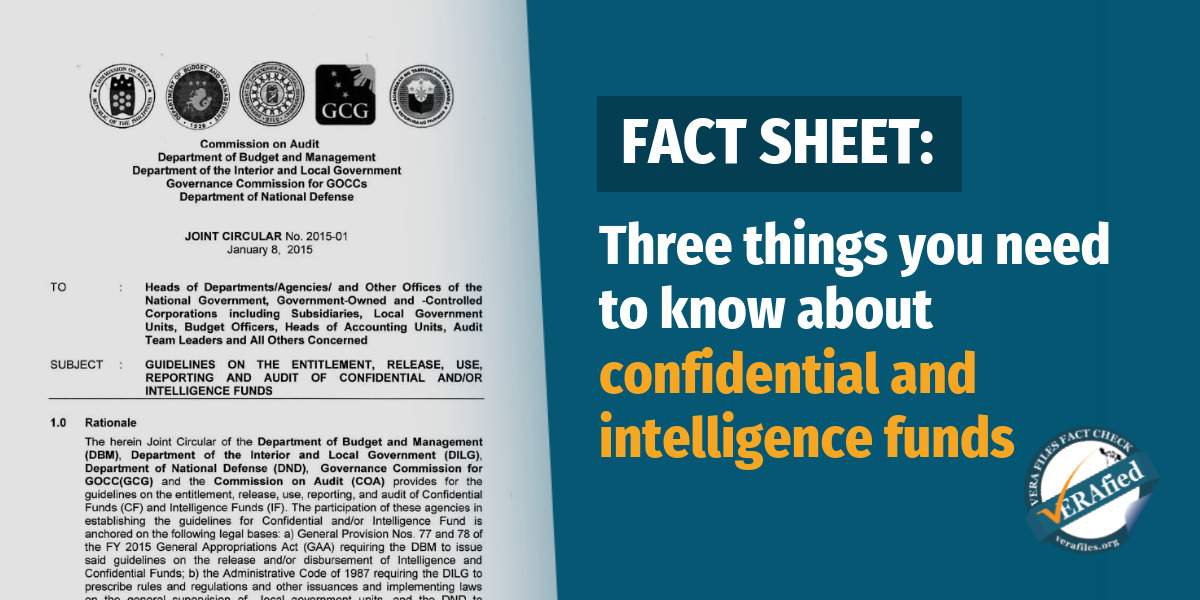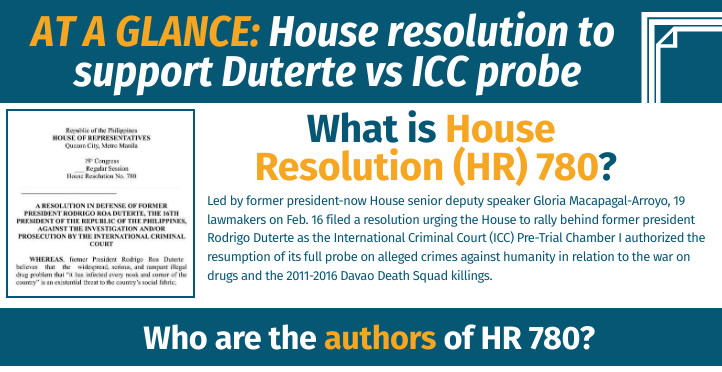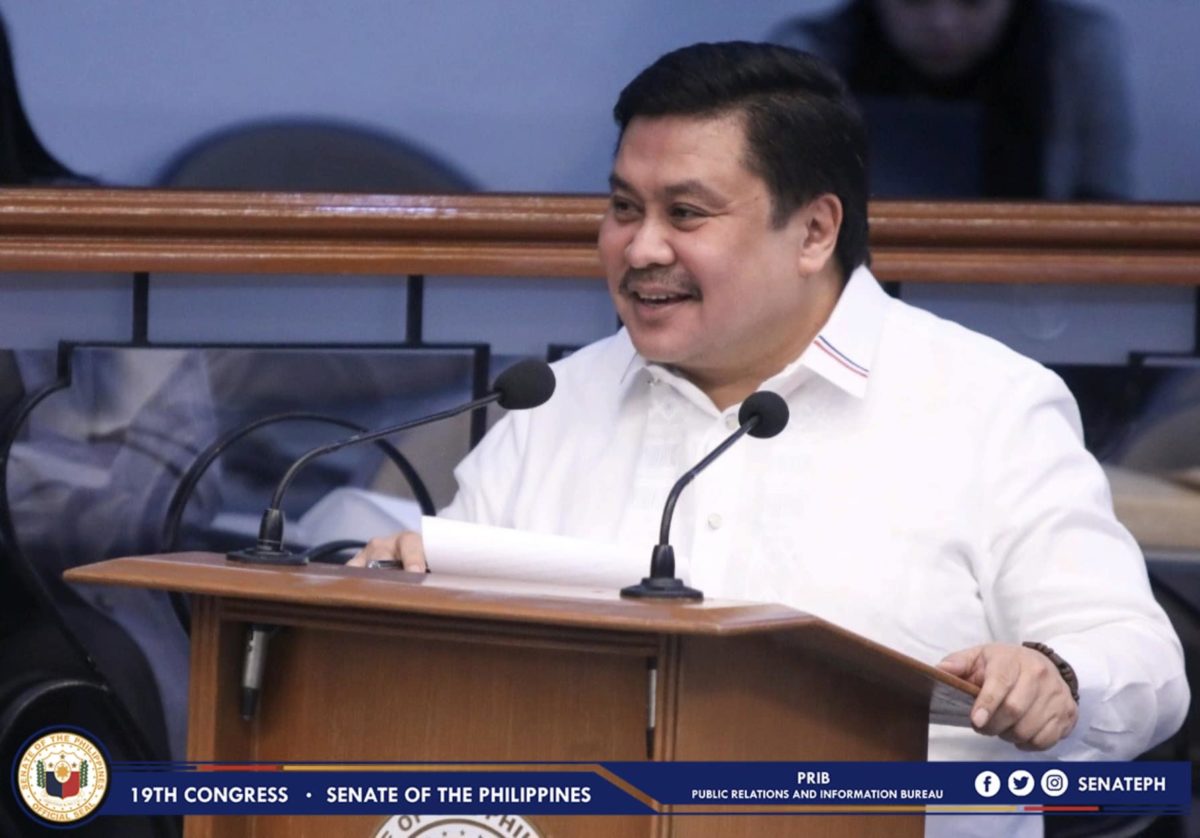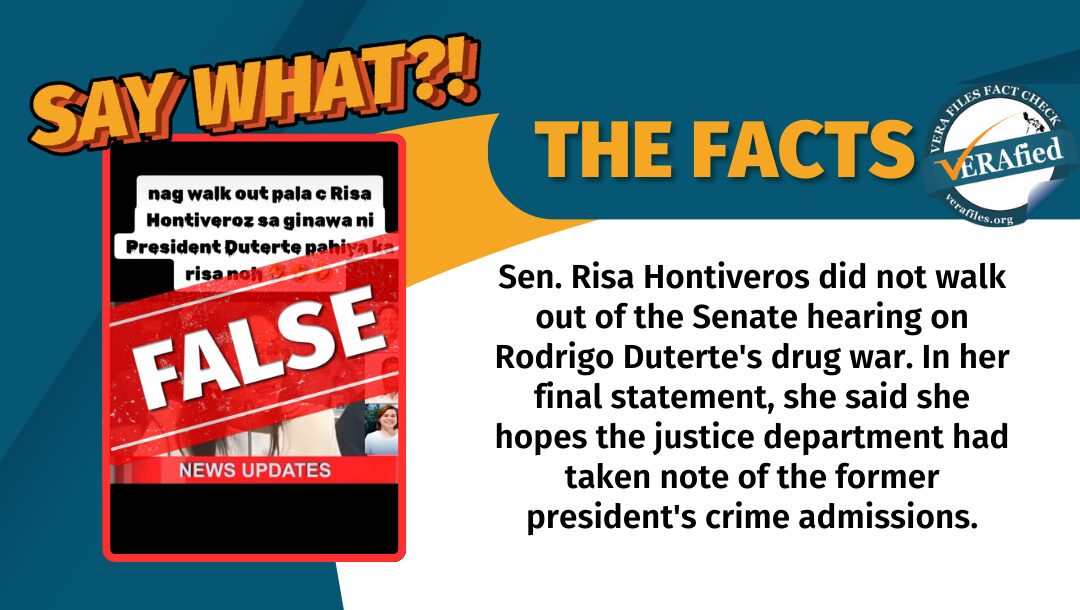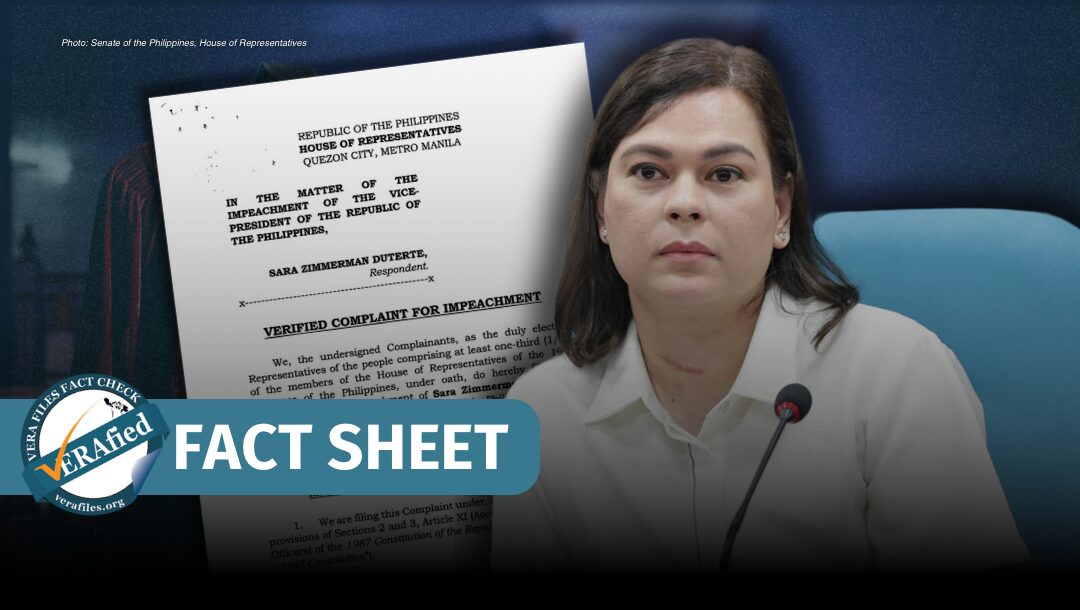With Paolo Benigno “Bam” Aquino IV poised to make a Senate comeback based on his unexpected high ranking in the May 12 midterm elections, VERA Files Fact Check noticed a barrage of posts online questioning the role he played in the enactment of Republic Act (R.A.) No. 10931 or the Universal Access to Quality Tertiary Education Act.
The posts —which started spreading when initial unofficial vote tallies showed Aquino placing second to reelectionist Sen. Bong Go— exhibit possible coordinated inauthentic behavior. These posts carry a resounding narrative: former president Rodrigo Duterte deserves credit for signing the proposed law.
How did the free college tuition law come to be? Here are two things you need to know:
Who are the people behind the passage of the bill into law?
R.A. No. 10931 became law on Aug. 3, 2017 when then president Duterte signed the enrolled bill from Congress. It provides for free tuition and other school fees to all students in state and local universities and colleges (SUCs and LUCs), as well as those in technical and vocational institutions under the Technical Education and Skills Development Authority.
Similar bills were filed both in the Senate and the House of Representatives from 2016 to 2017. When the consolidated bills were separately approved by both chambers, the House version – which subsidizes both tuition and other school fees – became the working draft in the bicameral conference. The Senate counterpart provided only for tuition subsidy.
Aquino was among the 12 senators who authored the final Senate bill. He submitted a bill co-authored with Sen. Risa Hontiveros upon the opening of the 17th Congress on June 30, 2016. However, then-Senate president pro tempore Ralph Recto and then-majority leader Joel Villanueva were the first to file jointly a similar bill on the same date, making them the principal authors. It was actually a re-filed bill from the 16th Congress.
Aquino was an author and principal sponsor as then-chairman of the Senate Committee on Education responsible for shepherding the bill until it became law. He has never claimed to be its principal author.
READ: VERA FILES FACT CHECK: Sen. Bam Aquino never claimed to be ‘principal author’ of free education bill
In the legislative process, a principal sponsor is tasked with facilitating committee public hearings to scrutinize, refine, consolidate and/or rewrite the bill. The committee then submits its final report to the plenary for the measure to be debated on.
As principal sponsor, Aquino presented the proposed law in the plenary, explaining what it was about, defending its provisions and answering questions and concerns during the interpellation period, and responding to proposed amendments. He essentially ushered the passage of the bill from the committee level up to the bicameral conference.
Both houses of Congress ratified the bill—officially known as the Universal Access to Quality Tertiary Education Act—on May 30, 2017.
For the Congress-approved bill to become law, the Constitution provides that it must be presented to the president, who can either sign or veto it. The legislative process also allows the bill to lapse into law if the chief executive does not sign it within 30 days from transmission of the enrolled bill to his office.
The enrolled bill was sent to the Office of the President on July 5, 2017.
On Aug. 3, 2017, just two days before it was to lapse into law, Duterte signed it despite opposition from his top economic advisers, who said the government could not afford to shoulder the cost it entailed.
“We estimated the cost of this bill, it will cost us something around P100 billion. Hindi po kaya ng gobyerno ‘yan (the government cannot afford that),” then Budget secretary Benjamin Diokno said in a briefing on the proposed 2018 national budget.
Subsequently, the Commission on Higher Education (CHEd) was given a P40-billion budget for the implementation of free college tuition law.
In 2023, CHEd chairman Prospero De Vera III, who was a commissioner when the law was passed in 2017, said Sen. Christopher “Bong” Go should be credited for saving the bill from a presidential veto in view of the objections of the economic advisers.
“It was really Bong Go who called me up, I think four days before the veto, and asked me to show up in the Cabinet meeting to fight for it. And it was Sen. Bong Go who facilitated that the confidential memorandum that I will write will reach the President,” he said at the Pagtutulay, Pagtutuloy: Strengthening Partnerships in Philippine Public Higher Education Summit in Davao City on Sept. 15, 2023.
“Hindi isang tao ang naglalang ng batas na ito. Pero para sa akin, ang pinaka-mapagpasya dito, ‘yung mass movement. 1980s pa dala iyang call for free tuition—free education, hindi lang free tuition,” said former ACT Teachers Party-list Rep. Antonio Tinio, one of the principal authors of the House bill, at a May 15 press conference.
(It was not just one person responsible for this law. But for me, the most decisive factor in its passage is the mass movement. The call for free tuition has been campaigning since the 1980s—free education, not just free tuition.)
How did the free college tuition law come to be?
Five separate but similar bills were filed in the Senate mandating tuition-free education in SUCs. Aquino authored two of these upon the opening of the 17th Congress in June 2016. However, Recto already filed S.B. No. 2986 on Oct. 6, 2015, similarly pushing for free higher public education.
Bills filed since the 8th Congress (1987 to 1992), which is as far back as the online archives of the House of Representatives and the Senate go, that sought to subsidize tertiary education were focused only on specific sectors or specific degree programs.
For instance, some bills provided for free tertiary public education for “poor but deserving” students or children of teachers, others for education employees and barangay officials; as well as students pursuing information technology, public administration and postgraduate degrees.
In the House, the first push for universal tuition-free education in SUCs was in H.R. No. 2135 filed by Terry Ridon, then-representative of the Kabataan Party-list, on May 27, 2015.
“The collection of other school fees infringes on the access of the youth to tertiary education and must therefore be abolished,” a part of the resolution read.
In the 17th Congress, seven bills were filed in the Senate for free tuition in SUCs which were consolidated in Committee Report No. 28 with the substitute S.B. No. 1304 filed on Jan. 23, 2017. The component bills were:
- S.B. No. 61 filed on June 30, 2016 by Sens. Ralph Recto and Joel Villanueva
- S.B. No. 158 filed on June 30, 2016 by Sen. JV Ejercito
- S.B. No. 173 filed on June 30, 2016 by Sen. Bam Aquino
- S.B. No. 177 filed on June 30, 2016 by Sens. Bam Aquino and Risa Hontiveros
- S.B. No. 198 filed on June 30, 2016 by Sen. Sherwin Gatchalian
- S.B. No. 962 filed on Aug. 1, 2016 by Sen. Francis Pangilinan
- S.B. No. 1220 filed on Oct. 24, 2016 by Sens. Sonny Angara and Loren Legarda
In the House of Representatives, 59 free tuition-related bills were consolidated in Committee Report No. 227 with the substitute H.B. No. 5633, which was approved on third reading on May 22, 2017. Seventy-two principal authors were listed in the final version of the bill transmitted to the Senate.
